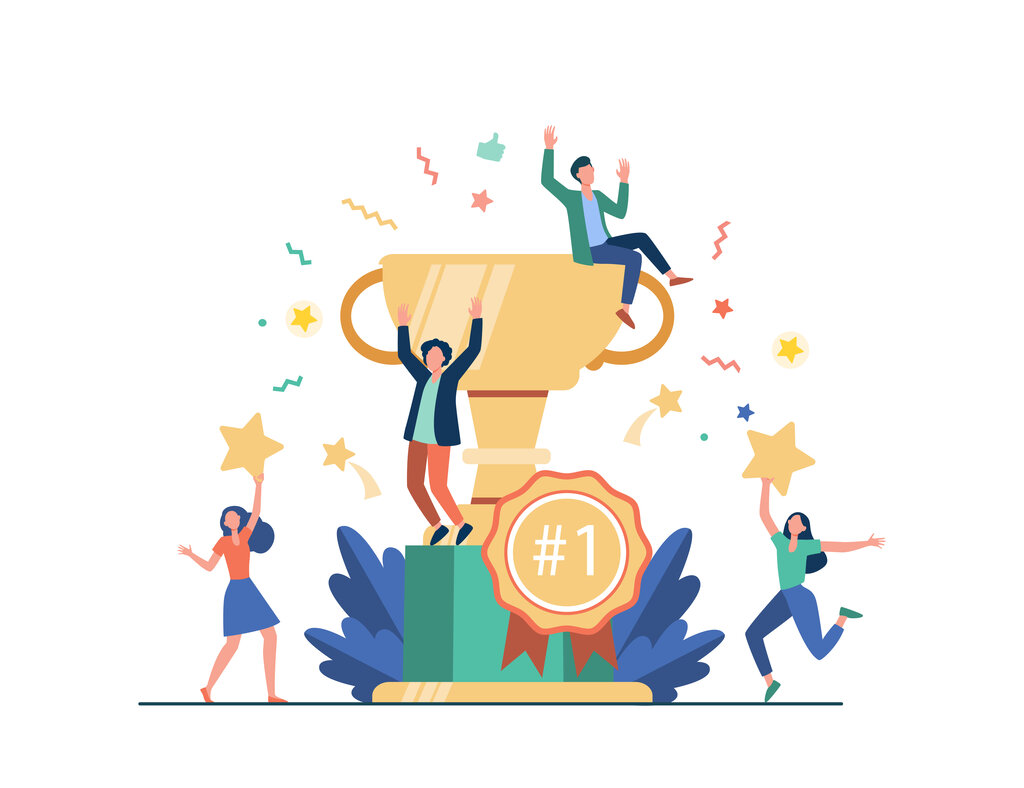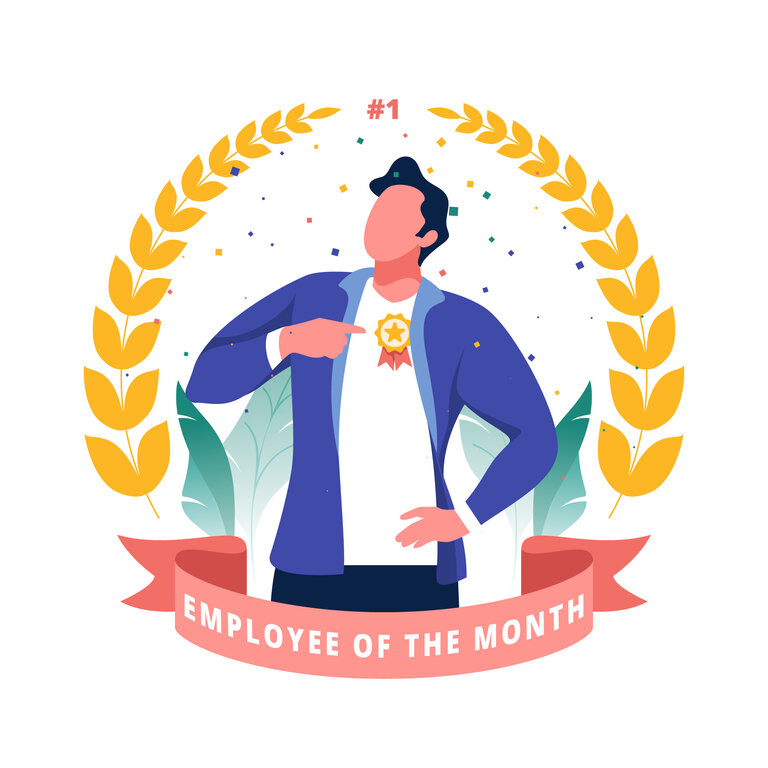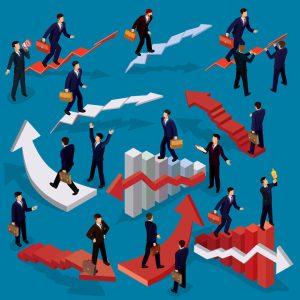
Employees are the most important asset of any organization. Following are the strategies to enable an effective Rewards & Recognition program and drive high employee engagement.
Get free Trial of Reward and Recoginition Software for your Employees
Employees are a vital part of any organization and it is crucial to keep them motivated if they are to perform to their full potential. Rewards & Recognition are a tried and tested strategy to drive employee engagement and job satisfaction, leading to higher productivity.
Top tier companies globally have adopted comprehensive systems of recognition and appreciation to engage and retain their top talent.
Tangible rewards with a direct financial value are certainly important for employees; however, money alone cannot make it memorable for them. Intangible rewards like well-deserved recognition from peers or bosses, result in a memorable moment for the employee and making it more significant than a cash reward.
According to a study by McKinsey titled “Getting beyond Money”, praise and commendation from managers was rated the top motivator for performance, leaving behind other financial incentives, by a majority of workers which is 67%. It is absolutely left to an organization’s discretion whether they would want to link monetary benefits to their Rewards & Recognition program or not. The magnitude of the investment made in comparison to the actual tangible and intangible benefits achieved is insignificant, making it a high ROI initiative.
There are many small and simple ways to show your employees that the organisation recognizes them and cares for them.
Sending birthday wishes though emails/recognition platform is hygiene and will not do the trick. Companies need to go the extra mile to make an employee feel special on their day. Give floating offs, send cake/pastries/cookies, arrange for a team party or get flowers delivered to their residence. Recognition can also be extended to special days like wedding anniversaries, job anniversaries, etc.
Promote healthy peer relationships at work by allowing space for appreciation from peers. Peer to peer endorsements facilitate employees to appreciate instances of positive contribution/ behaviour, demonstration of organizational values, and desired behaviours. PossibleWorks enables peer to peer appreciation through badges aligned to org values, behaviours, competences. You can introduce gamification by creating progressions leading to specific titles like Value Champion, Trailblazers, True Citizen, or sponsor entry into specific clubs, etc. This can be done by conducting surveys and appreciating the employee with maximum votes.
Employee success stories can be added to the company’s monthly newsletters. Companies can also create a newsletter targeted to internal stakeholders of the company which only publishes these success stories.
HR team or managers should make congratulatory announcements for the top performers. The announcement can be made in the employees’ bay where they sit to boost their morale amongst peers. This has an element of surprise and leaves the employees/team happy and grateful towards the organization.
Invite employees’ families for the annual R&R, ensure that the top performer’s family is present to celebrate the occasion.

A HAT/Badge/wrist band can be given to the top performer to wear through the day. The achiever gets a proud moment and other employees will want to don the Hat in the upcoming month.
Introduce the top performer to the Top Brass of the company. Arrange for a session with the CEO, president, or a board member where they can discuss current performance, what motivates the employee and the employee’s growth path.
A handwritten note of appreciation always boosts employee morale. The impact of a handwritten “Thank You” is unparalleled. So, make sure you don’t miss out appreciating your deserving employees using written notes.
Technology helps you recognize your employees beyond in-house recognition. Allow your customers (internal and extremal) to know about your employees’ achievements by using technology in creative ways:
Virtual Wall of Fame increases the value of social recognition through auto-publishing rewards and recipients. PossibleWorks allows colleagues to contribute to the live recognition feeds and build success stories from each achievement. Social participation is encouraged through real-time comments / like options. We also provide options to integrate with existing Enterprise Social Networks such as fb@work, yammer, slack.
Create a short film on an employee’s achievement, as most people love to see themselves on screen. It can be a small interview with the employee and can run on screens in office and also be published on company’s employee portal or distributed through email within the company.
Usual practice is to have the leadership teams on website. A section can be added on the website that appreciates top performers and showcases their achievement. To be seen by external customers/website visitors and being placed amongst the leadership team can act as a powerful motivator.

Employee rewards unlike recognition, have a monetary value attached to them. Rewards programs need to be crafted carefully by HR teams to ensure that the employees are motivated. At the same time, it does not affect a company’s bottom line. One thing to consider when designing a reward program is what the performer is being rewarded for, like an employee/team negotiating and cracking a big contract or onboarding a new client for the company needs to be rewarded highly compared to an employee/team with 100% attendance.
Here is a list of rewards programs aimed at individual and team performances:
Many organizations use standard rewards to appreciate employees. To ensure higher motivation, rewards should be tailor-made and of interest to the specific employee. The HR team needs to keep account of each employee hobby in their CRM and reward a performer accordingly. Example gifting a football shoes to a football enthusiast or gifting a camera holder to a vlogger.
Monetary incentives have been proven to boost employee engagement: One study by the Incentive Research Foundation found that when an incentive program is built correctly, it can increase performance by up to 44%. If an employee has contributed to adding to organization’s revenue or saves expenditure, a portion of the benefit should be distributed amongst performers. Incentive programs need to designed in a way that employee feels motivated to achieve more and drive organization goals.
Rewards should be creative so that they have lasting impressions on performers and keeps them motivated to achieve more. Some examples of a creative reward are employee caricature showcasing their mood and the achievement, an upgrade of their office chair, primo office parking for the month.
Sending employees for seminars, conferences, leadership programs, career development programs, allow employees to select an online course adds to their learning and development and acts as a great motivator. This motivates employees to take up bigger role within the organization.
Staycation is a period in which an individual or family stays home and participates in leisure activities within day trip distance of their home and does not necessarily require overnight accommodation. A quality sponsored day trip acts as powerful motivator for employees.
Gift employees’ ticket to events of their choice, let them choose between sports, movies, plays, music events or seminars.
Lunch parties are a great way for team bonding as well appreciating employees that performed well. You can also order snack from their favourite restaurant and get it delivered at the employee’s desk with a small note of appreciation.
Rewards should be personal and long lasting. Some personalized gifts can be iPad/mobile covers with name engraved, coffee mugs with message, pen stands, photo frames with message, posters to put on desk.
There are many companies offering corporate gifting cards, employees can encash these on ecommerce and even brick and mortar stores to buy things as per their current requirements.
Gone are those days when Rewards and Recognition was considered a nice to have component of an organisations HR strategy and should be a part of the company’s culture. Today it has emerged as a critical tool for enabling global organizations to enhance engagement, increase motivation, improve performance, and drive organizational culture.
Now that you are looking at building a robust Reward & Recognition system, we recommend that you read the following to avoid common pitfalls while designing the R&R program and benefits of leveraging technology to drive the program.